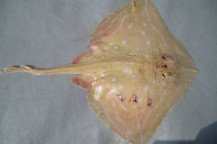c-Kit in feline mast cell tumors
Most mast cell tumors in cats are considered low aggressive neoplasms unlike what happens in dogs. A variable percentage of these lesions, however, behave as malignant tumors generating visceral dissemination from skin as much as in 22% of cases. But except the mitotic index, there is no consensus on the criteria for recognizing this subgroup of tumors more aggressive.
Considering the linkage in dogs between mutations in the gene (c-Kit) encoding the tyrosine kinase receptor in mast cells and increased cell proliferation and reduced survival rate, it has been considered whether identification of this molecular alteration would allow better understanding and recognition of those more aggressive tumors. As in dogs, cats also develop mutations of c-Kit. However, whereas the distribution of the protein is linked to tumor behavior, altered proto-onogen does not correspond as in dogs with neoplasia development or prognosis. This paper discusses the dubious role of alterations of receptor c-Kit in cats.
Prognostic significance of Kit receptor tyrosine kinase dysregulations in feline cutaneous mast cell tumors. Sabattini S. Vet Pathol. 2013. 50(5):797-805
Archive




